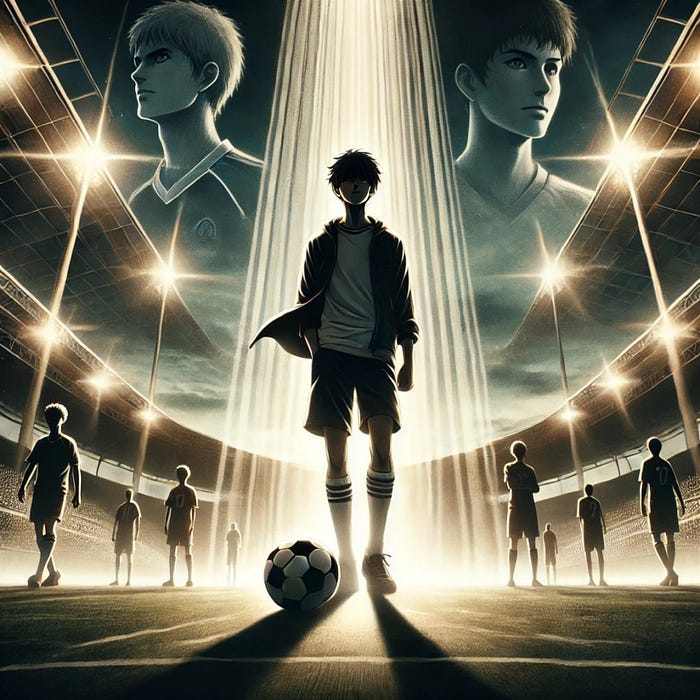What Blue Lock Teaches About Growth, Ego, and Luck
What If Selfishness Wasn’t a Flaw — But a Requirement?
Most of us are taught that teamwork is about sacrifice. That to succeed, you should put the team above yourself. But what if the opposite was true?
Blue Lock flips this idea on its head. It asks: What if the best way to help your team is to become the best version of yourself?
After finishing Season 1, a few lessons stand out — ones that apply far beyond the field:
Evolution is the key to survival.
You don’t abandon who you are — you refine it. Greatness isn’t about having every skill but about sharpening the ones you already have until they become unstoppable. The best strikers don’t play safe. They adapt. They evolve.
2. Ego isn’t the enemy — it’s the engine.
Society tells us to be humble. But in Blue Lock, ego is fuel. Not arrogance — but belief. A hunger to improve. And when one player elevates themselves, they push their entire team forward.
3. Luck is real — but only for those ready to seize it.
A ball deflects. A defender missteps. A gap opens. Luck happens every second — but it’s only useful if you’re positioned to take advantage of it. Awareness, skill, and risk-taking turn a random bounce into a game-winning goal.
4. Your limits are self-imposed.
The greatest players don’t just train harder; they think differently. They redefine what’s possible. They stop seeing limits as walls and start seeing them as doors waiting to be kicked down.
5. Failure isn’t defeat — it’s data.
Every loss is a lesson. Every mistake is a clue. The best don’t sulk when they fail — they analyze, adapt, and come back stronger. Growth isn’t linear. It’s a messy, brutal, and necessary process.
Blue Lock is about more than just soccer. It’s about breaking past the mental barriers that hold you back. It’s about learning that selfishness — when done right — creates greatness.
So the question is: Where in your life do you need to evolve?
Stay ruthless,
Zain Kinnare



